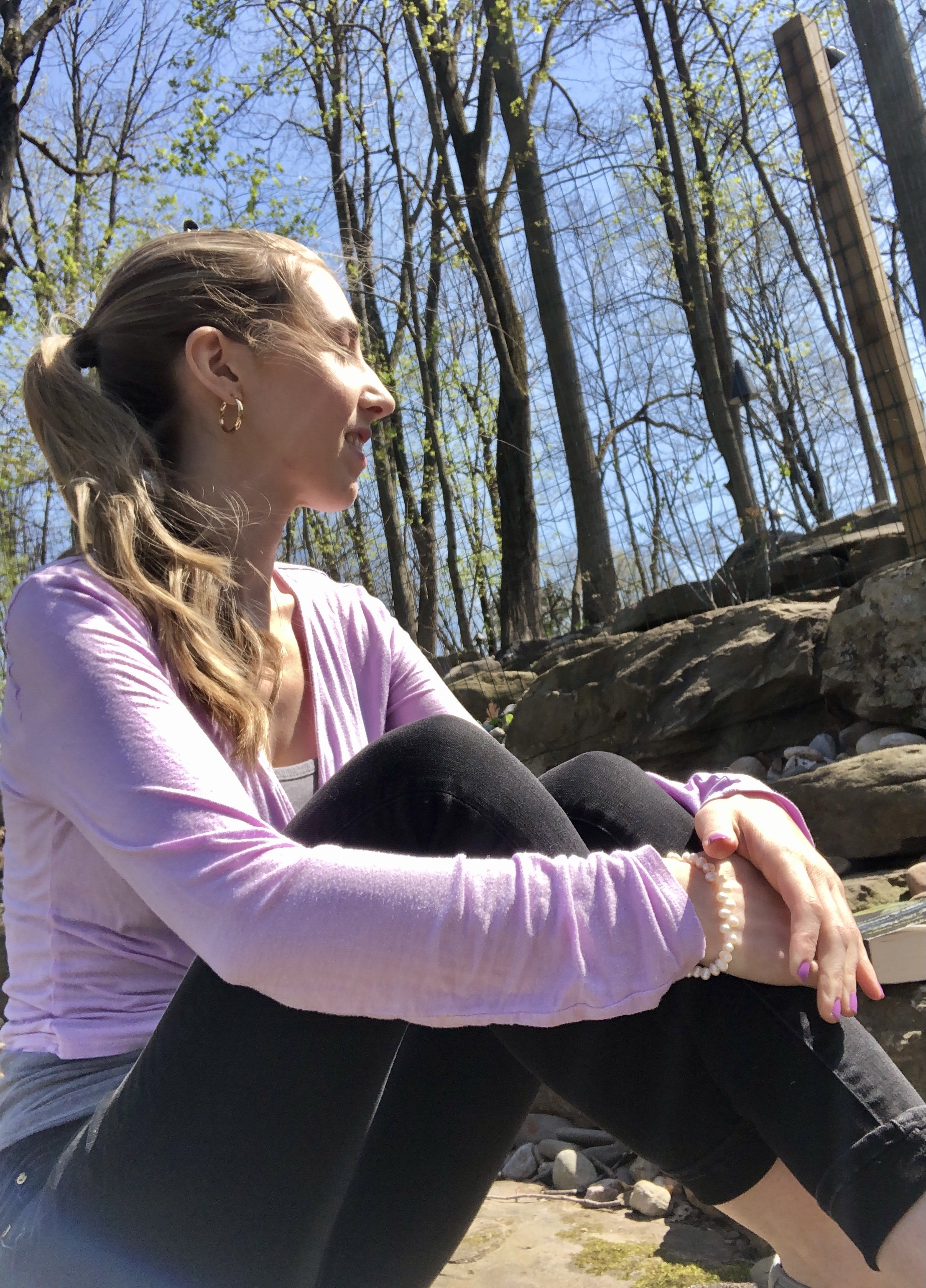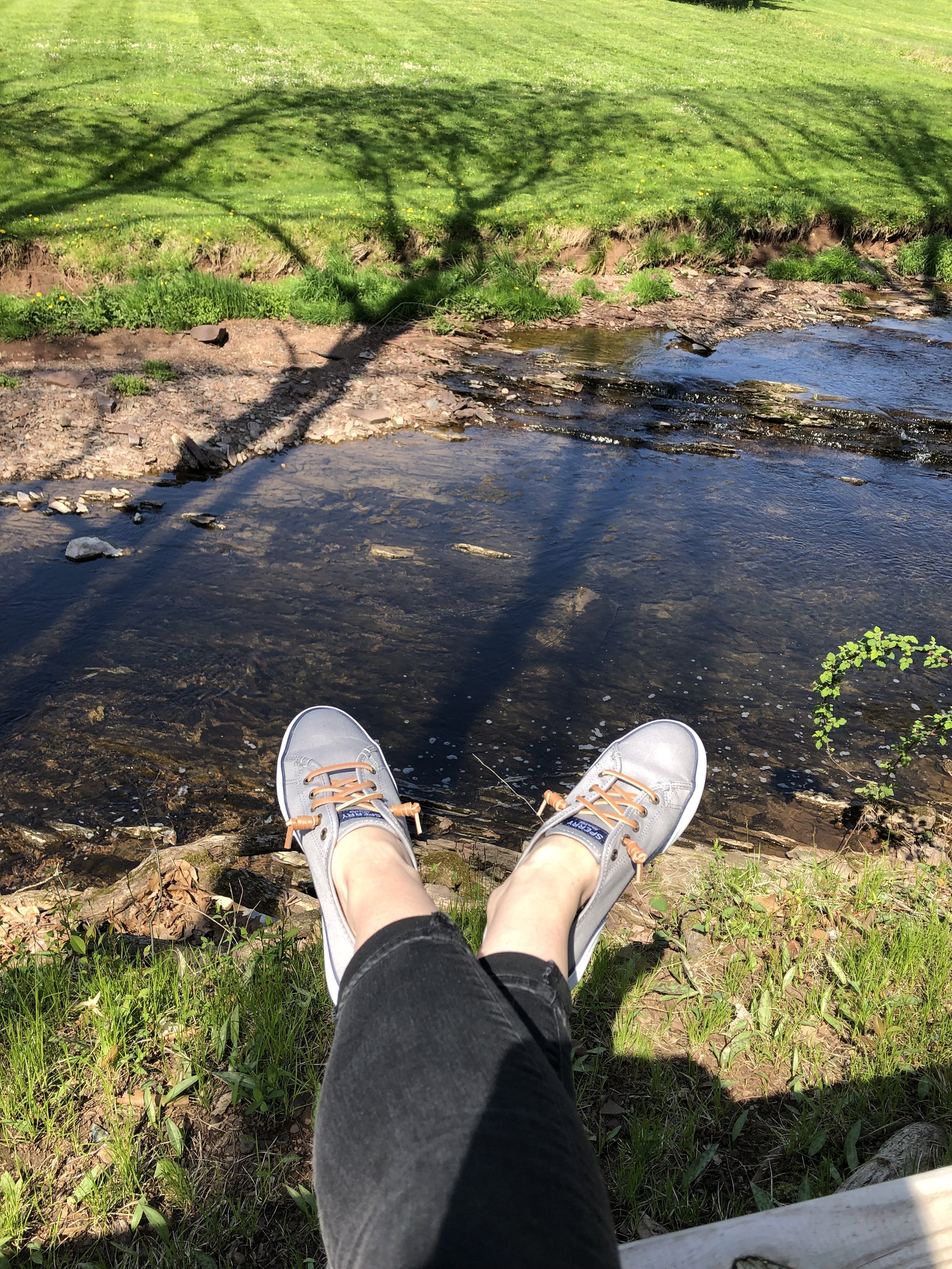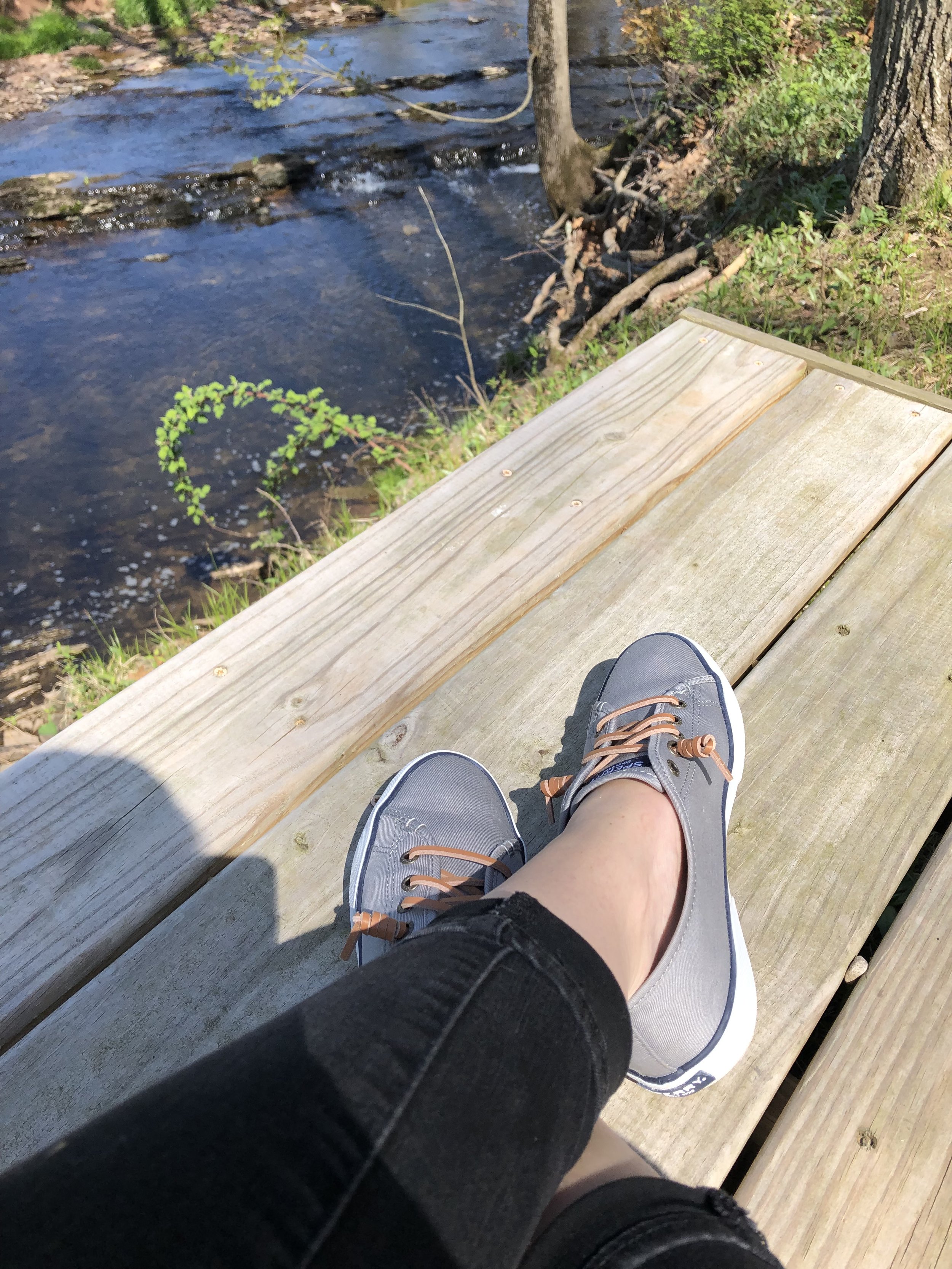Chronic Illness Diaries: Advice to Newbies

Hello!
I hope this spring finds you in good health and spirits, in whatever ways that may look like for you! A friend recently reached out to me because one of her family members was newly diagnosed with Lyme. I started compiling a bunch of resources for her on a word document and also started thinking about all that I have learned since my journey and what I would really someone newly diagnosed knowing what I know now.
To be honest, my list of advice items has changed a bit over the years as I learn and experience more, both medically, practically and emotionally. I thought it would make a great post to simply compile the top pieces of advice I would give to a chronic illness and especially Lyme newbie!
In no particular order of importance, here goes my list of advice for newbies! Not everyone with a health condition will agree with my points, and that’s totally fine, but I feel quite strongly about each of them after six years!
1.) Avoid Dr. Google
When you are newly diagnosed with a condition, the biggest temptation can be to instantly start punching questions into the search engine bar to get as much information as quickly as possible! We have so many questions and are so eager to know what we are in for and what we should start doing next. Logical thinking. But, let me just tell you, googling health conditions is a slippery slope from harmless curiosity to complete overwhelm! Google pulls articles from who knows where and a strong majority of the information you find will not be helpful or relevant to you. That’s why I would advise someone newly diagnosed with a condition to either ask their doctor for reputable information or to get connected with someone who has that condition firsthand.
2.) Keep a list of doctor referrals
If you were diagnosed by a general doctor but not a specialist, it’s not a bad idea to reach out to people in your community (or, in this case Google) doctors who specialize in your condition. But even if you find someone, I would still keep a list of several doctors who specialize in your condition because sometimes you need to sample a few until you find one that is a good fit. Or other times you may see a doctor for a little while but need to move on. Either way, keeping a list is smart because you always have someone on deck!
3.) Avoid forums and support groups!
This one is HUGE. Now occasionally there may be a benefit in reaching out on a forum for something like a doctor referral in your region, but for the most part forums and support groups are littered with negativity! People who spend their time on the forums are those who have not gotten better—so the feedback you are going to get is almost always going to be negative. It is really important to protect your morale and attitude while being in such a vulnerable place, and the negative energy on forums and support groups can be very disheartening and discouraging and can even drag you into despair and hopelessness. I would AVOID them!
4.) Set boundaries around thinking or talking about your condition or symptoms
This is another critical point of advice that I wish I realized when I started my journey! It is SO tempting and easy to let your thoughts, feelings and conversation revolve around your condition, symptoms, limits, struggles, etc. It’s understandable—but completely toxic. What starts as simply noticing how you are feeling can turn into a full-time body monitoring obsession. What starts as trying to communicate what you need and how you are doing to necessary people can turn into letting your health monopolize all of your interactions. And what we think and talk about the most starts to become our reality. Obviously you can’t completely ignore it and need to be able to communicate how you feel at times, but try to set boundaries with symptom thoughts and symptom talk as much as possible for the sake of not letting it consume you and your relationships! Trust me!
5.) Don’t put your entire life on hold
As much as you are comfortably able to, try and keep life as normal as possible. Try to make time to socialize, stay plugged into outlets that give you hope and encouragement and make time to get dressed and go out, even if just in little doses or you have to leave time to recover. It can be tempting, especially for newbies, to put all of their energy and focus into trying to get their health back while putting everything else on the back-burner. But life still has to go on! Trust me when I say you will regret letting your health issues steal more life experience away from you than they absolutely have to. Besides, you don’t know how long it will take to get things under control. Sometimes you have to make the best of the journey and find ways to continue living rather than wait until things are totally better to have a life!
6.) Pace yourself
I meant what I said above, but it’s still important to listen to your body. Give yourself built in margin to buffer an activities you choose to maintain, and realize that sometimes your body might just say no!
7.) Enlist a support system
Huge, huge, huge! Ideally you already have close friends and family to turn to, but don’t be afraid to reach out to counselors or mentors also. In the past I have gone through my local church and have gotten connected with mentors who have been instrumental in my spiritual and emotional support and have found a great therapist as well who understands chronic illness firsthand. Sometimes it’s good to find support beyond our primary caregivers or family.
8.) Find hobbies that you can handle
Anything that brings you a jolt of happiness, life energy and distraction from the negativity in your life—DO IT. If you aren’t a hobby person or if your hobbies aren’t compatible with your new lifestyle, just experiment with different ones. I personally have found painting and blogging and reading to be most helpful for me.
9.) Make peace with your symptoms
When you are feeling discomfort, instead of immediately giving into frustration or anxiety, try to make peace with those symptoms as though they were temporary roommates. This will help you alleviate extra tension that might be feeding into that chronic stress response even more!
10.) Be your own doctor
For the longest time I passively relied on my doctors to figure everything out. Now I realize that is simply not always possible! Unfortunately, no matter how good our doctors may be, they don’t always have the time or insight to fully understand what is going on. And we know our bodies better than anyone else. So don’t be afraid to take matters into your own hands and do your own homework and experimentation. Listen to your body above all else and if you feel like something is off, heed the warning!
It is also much more empowering to take initiative in areas of your own recovery—like experimenting with diet, meditation and adjusting dosages and protocols to fit what your body can handle rather than simply what your doctor thinks is best.
11.) Avoid unnecessary sources of stress and negativity
Give yourself permission to significantly limit exposure of engagement with any people, circumstances or avenues of stress and negativity as much as possible (social media, news, difficult people). Most people who develop a condition are very sensitive and tend to absorb tension and stress quite easily—which can exacerbate symptoms and hinder recovery. Sometimes you need to bubblewrap yourself!
12.) Feed yourself with positivity
Anything (safe) that makes you feel good and distracts you from your symptoms or condition—do it in spades! Whether that means reading an inspiring book, listening to upbeat music, watching a happy movie, dressing up, crafting, spending time with friends and just laughing, these are critical to engage in! You want to create as many feel-good chemicals in the brain as possible to counteract the negativity that chronic pain or fatigue may cause. It’s biologically healthy for the body to laugh, imagine and just ESCAPE from chronic sources of stress.
13.) Realistic expectations
While I’m all about distancing and dissociating from your condition as much as possible, I’m not advocating denial! It’s important, especially for newbies, to have realistic expectations for their treatment protocols and lifestyle. I’m not saying to give up hope, but I am saying to not expect instantaneous results. Many people do reach remission or healing and can eventually live normal lives again, but the process can be difficult and lengthy. It’s helpful to prepare for those difficulties going in rather than to be caught off guard later by how hard it is. Better be pleasantly surprised than bitterly disappointed!
14.) Give yourself grace
Does this overused expression ever grate at you like it sometimes does for me? Basically, just don’t be too hard on yourself! Chronic illness is TOUGH and you are going to be challenged and pushed in deeper ways. If you have dips and fluctuations in your attitude, capabilities or productivity, that is totally OKAY! You do NOT need to punish or shame yourself for not handling things the way that you used to or the way other people may be able to. You are on your own journey and are developing new levels of strength and resilience that are priceless. If you have a bad day, just float through it and keep going.
Also, don’t be afraid to adjust your lifestyle, cut back on tasks or enlist help with daily tasks. For newbies especially, don’t wait until you have scraped rock bottom and you can’t get up to cut back on tasks like work, etc. Your health comes first!
15.) Forget about trying to prove anything
A very common struggle for people in the newer phases of their health journey is to struggle with trying to “prove themselves” to others. They may feel like they need to justify their health struggles and explain their condition to people who may not see any difference from the outside. Or they be resistant to trying certain things for fear that people may not take their health struggle seriously.
So, lean in close and hear what I am about to say……JUST LET IT GO! Seriously. Don’t worry about it at all. The people who mean the most to you will trust you and be there for you. And anyone else who may question or judge you? Their opinions don’t matter! Life is way too short and your energy too precious to waste on worries about what other people think. You will feel way lighter and more joyful if you give yourself permission to concern yourself with what makes you feel happier and more normal on your health journey.
That’s about it
I think I could have kept going for a while, but these are the main points! For anyone out there who has charted a chronic health journey for a while, what do you think of this list? Would you add anything else? I would love to hear!





